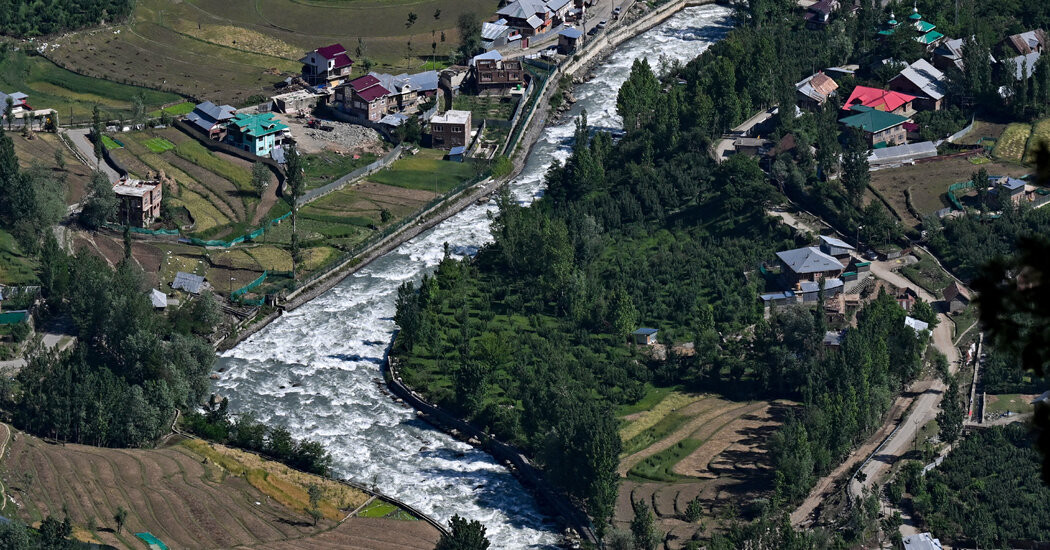

Though the two neighbors declared a cease-fire this month, a crucial water-sharing treaty remains at risk.
The drones and missiles have been stilled after India and Pakistan’s brief but intense military battle this month. But the two neighbors have turned up the heat on another longstanding conflict, over the sharing of water.
A day after terrorists killed 26 people on the Indian side of Kashmir in April, igniting tensions that would lead to four days of escalating conflict, the Indian government said it would suspend a vital pact governing rivers that flow from India into Pakistan.
That agreement, the Indus Waters Treaty, covers a river system that tens of millions of people rely on for their livelihoods and survival. India, which linked the April attack to Pakistan, said it would step away from its obligations under the pact until its nemesis “credibly and irrevocably” renounced support for cross-border terrorism. Pakistan, which denied any role in the terrorist attack, called India’s move an “act of war.”
India’s targeting of water, however, is not just about combating terrorism, analysts say. The Indian government has been frustrated by the 65-year-old treaty, believing it has favored Pakistan from the start, and analysts say that India is hoping to force Pakistan to renegotiate it. That could allow India to better use its allotted waters to meet the needs of its immense population and adapt to climate change.
India’s decision to put the agreement “in abeyance” — and the vague conditions it has imposed on Pakistan to reverse that — has injected a note of uncertainty into the future of a treaty that has survived multiple wars and conflicts.
A full breakdown would have serious consequences for both countries, especially Pakistan, an arid land with few other sources of water.